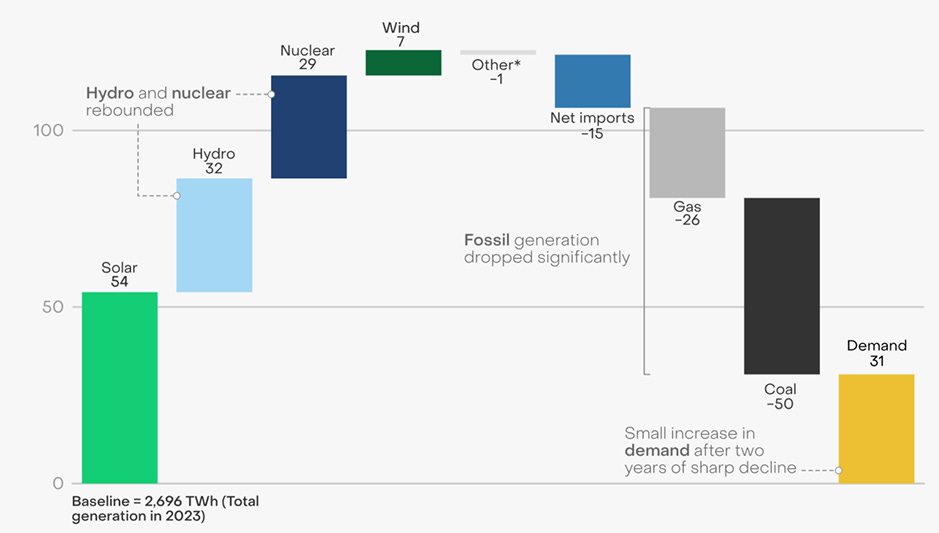As the Western defence alliance has all but died under the new US administration, Europe must deal with an increasing likelihood of having to face Russia in the battlefield. Increasing the geopolitical independence of Europe is part and parcel of adjusting to this new world order. Renewable energy will play a crucial part in this process.
Opponents of renewable energy usually come from the conservative side of the political spectrum. Their arguments against renewable energy are usually focused on intermittency issues and costs. The argument is that we need reliable energy sources to provide baseload and that gas is cheaper than renewables if you take away the subsidies.
As for the first point, I completely agree that we need secure baseload power. This is why I am an advocate for nuclear power and peaker gas plants to help deal with intermittent demand that cannot be covered by wind and solar in the short term. But the more we can cover with renewables, the less we need gas.
As for the cost argument, what good does it do if you rely on cheap gas if you must import it from geopolitical adversaries. Yes, since the Russian invasion of Ukraine, Europe has switched its gas imports to a large extent from Russia to Qatar and the US. But as Ember’s European Electricity Review 2025 shows, European gas imports from Russia have increased in 2024 compared to 2023 even though we had these new contracts with the US and Qatar in place.
EU gas imports over time
Source: Ember
Plus, does Europe really want to be economically dependent on energy from Qatar or the current US administration? I don’t know about my readers, but I am pretty sure Donald Trump would not hesitate a minute to use European gas dependence on the US as a tool to blackmail the EU into economic concessions.
No, in the next few years, the goal for Europe must be to reduce its dependency on fossil fuel imports as much as possible for political reasons, even if it costs more to run renewable energy than gas (which it doesn’t but some people still seem to think so). Consider it part of our defence spending if you must.
So here is the good news. According to Ember, the continued buildout of renewable energy in the EU has significantly reduced its dependence on coal and gas power in 2024.
Renewable buildout reduced EU’s dependence on gas and coal
Source: Ember
Over time, this reduced dependency also reduces the amount of money the EU sends to geopolitical foes. After all, to run gas power plants, the EU needs to import gas from countries like Russia, Qatar, Libya, and the US (all of which, yes all, are by now geopolitical or economic adversaries of the EU).
In total, the buildout of renewables in the EU has reduced the bloc’s gas bill by a cumulative €53bn and its coal bill by €6bn.
Estimated savings on imported gas and coal over the last five years
Source: Ember







Joachim's excellent piece about the "convenience yield" of renewables when your hydrocarbons come from sources that are geopolitically unreliable is well worth reading.
I'd add a couple of comments.
- The (unfortunately popular) proposition that gas is more competitive than renewables if you subtract the subsidies on the latter conveniently forgets about the (implicit) subsidy to gas that results from CO2 - or more broadly damages to the environment and human health - not being sufficiently priced (= taxed).
- the base load discussion is a complicated one. In a system dominated by intermittent renewables (which European energy systems are on the way to becoming), the non-renewable part of the electricity supply will need to be sufficiently flexible to respond to the ramping up and down of renewable sources. This makes base load plants like nuclear uneconomical as they need to run on more than 80% full load hours) and/or the electricity generated from them very expensive (unless itself massively subsidised). The only place I can convincingly see for nuclear in the energy mix is to power data centres and suchlike, which need reliable power 24/7. But there the problem is long build times (unless you want to have the Chinese build them for you). And the jury on SMRs is still out.
Why are the all-in power costs the highest in Germany (versus other E.U. countries)? R these high costs helpful ?